Description
Today, I would like to show how to split an array into several equal arrays in Azure Logic Apps. The easiest way for this task will be to write in-line JavaScript code or to use Azure Functions. Of course, there will be cost implications. Therefore, in this article, I will show how you can do it with vanilla Logic Apps functionality.
Data
As example let’s create a simple JSON object that contains an array of data.
{
"data": [
{
"title": "Project 1"
},
{
"title": "Project 2"
},
{
"title": "Project 3"
},
{
"title": "Project 4"
}
]
}Let’s imagine we need to split this array into 2 equal arrays.
Azure Logic Apps
Let’s start with creating an HTTP request trigger. It will listen a POST request on a generated URL. JSON schema for data provided above is the following:
{
"type": "object",
"properties": {
"data": {
"type": "array",
"items": {
"type": "object",
"properties": {
"title": {
"type": "string"
}
},
"required": [
"title"
]
}
}
}
}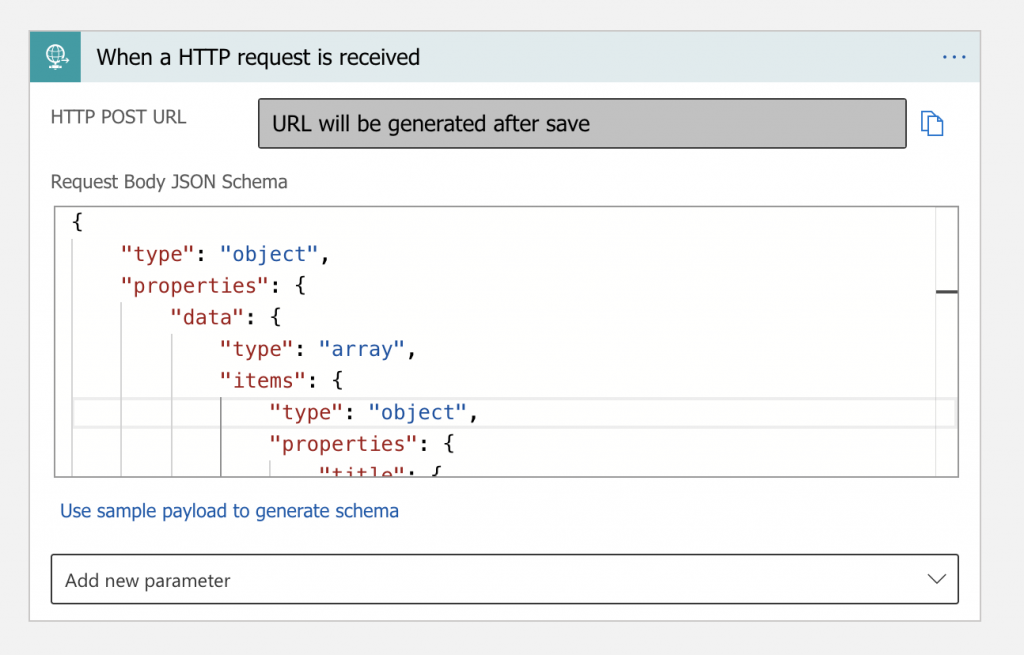
Now let’s initialize a new variable that will store only array data. We can do it easily with Logic Apps built in Initialize Variable function:

Now we need to create 2 variables with type array, where we will push data from original Incoming Array.
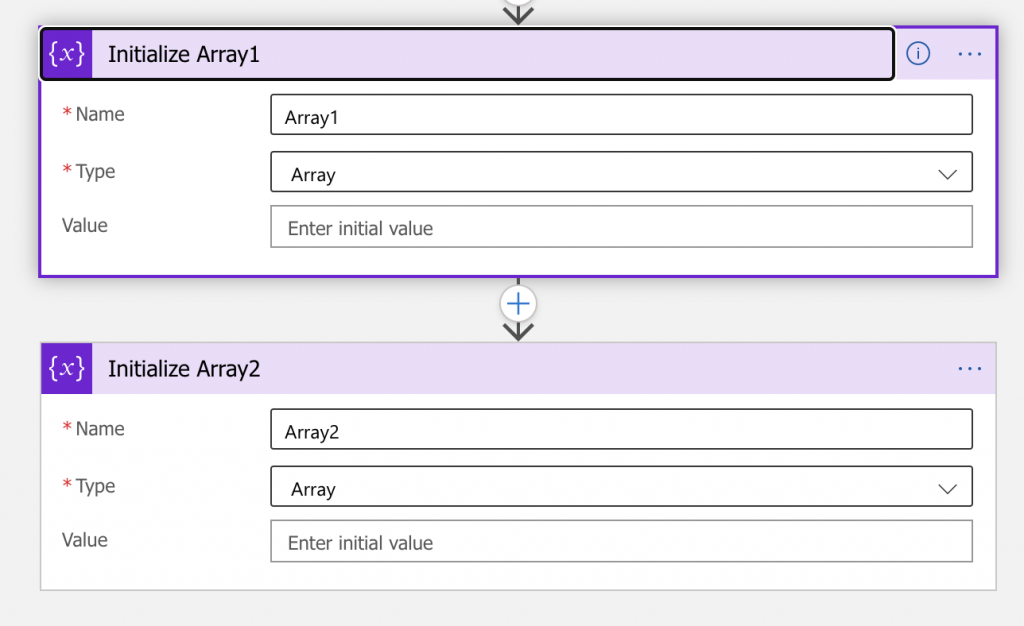
Plus we need to create one additional variable to control data flow. Let’s call it IndexArray. It will be integer with initial value equal to 1.

Loop through Incoming Array
Now we are ready to implement the logic. The whole idea is loop through incoming array, through each iteration the system should check if IndexArray is === 1, than push data to Array1, else push to Array2. On each iteration we will increment IndexArray. If IndexArray will === 3, override count to 1.
The first part should look something like that:
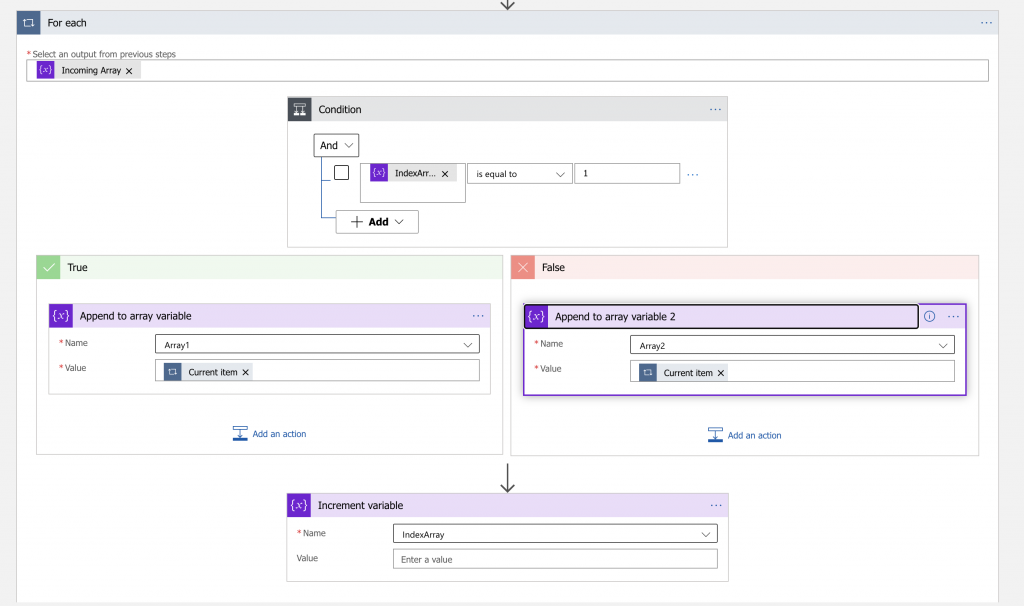
Plus logic to override the IndexArray
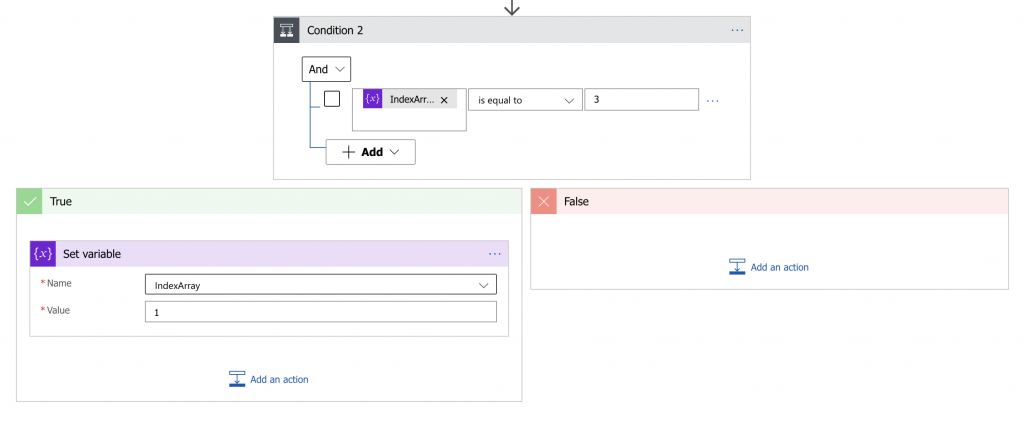
Loop concurrency control
The last thing that we will need to do (and this is something important), is to set concurrency mode for foreach loop to 1. So basically instruct Logic Apps to run this loop in sequential order.
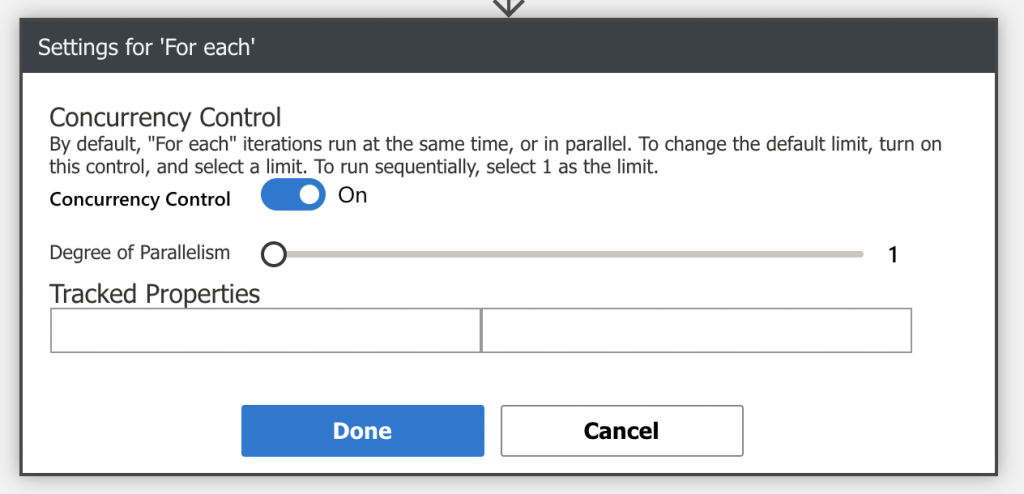
Summary
That’s it! You can expand this solution to more arrays if required. Just in case the whole JSON code is below. Happy coding!
{
"definition": {
"$schema": "https://schema.management.azure.com/providers/Microsoft.Logic/schemas/2016-06-01/workflowdefinition.json#",
"actions": {
"For_each": {
"actions": {
"Condition": {
"actions": {
"Append_to_array_variable": {
"inputs": {
"name": "Array1",
"value": "@items('For_each')"
},
"runAfter": {},
"type": "AppendToArrayVariable"
}
},
"else": {
"actions": {
"Append_to_array_variable_2": {
"inputs": {
"name": "Array2",
"value": "@items('For_each')"
},
"runAfter": {},
"type": "AppendToArrayVariable"
}
}
},
"expression": {
"and": [
{
"equals": [
"@variables('IndexArray')",
1
]
}
]
},
"runAfter": {},
"type": "If"
},
"Condition_2": {
"actions": {
"Set_variable": {
"inputs": {
"name": "IndexArray",
"value": 1
},
"runAfter": {},
"type": "SetVariable"
}
},
"expression": {
"and": [
{
"equals": [
"@variables('IndexArray')",
3
]
}
]
},
"runAfter": {
"Increment_variable": [
"Succeeded"
]
},
"type": "If"
},
"Increment_variable": {
"inputs": {
"name": "IndexArray"
},
"runAfter": {
"Condition": [
"Succeeded"
]
},
"type": "IncrementVariable"
}
},
"foreach": "@variables('Incoming Array')",
"runAfter": {
"Initialize_IndexArray": [
"Succeeded"
]
},
"runtimeConfiguration": {
"concurrency": {
"repetitions": 1
}
},
"type": "Foreach"
},
"Initialize_Array1": {
"inputs": {
"variables": [
{
"name": "Array1",
"type": "array"
}
]
},
"runAfter": {
"Initialize_Incoming_Array": [
"Succeeded"
]
},
"type": "InitializeVariable"
},
"Initialize_Array2": {
"inputs": {
"variables": [
{
"name": "Array2",
"type": "array"
}
]
},
"runAfter": {
"Initialize_Array1": [
"Succeeded"
]
},
"type": "InitializeVariable"
},
"Initialize_Incoming_Array": {
"inputs": {
"variables": [
{
"name": "Incoming Array",
"type": "array",
"value": "@triggerBody()?['data']"
}
]
},
"runAfter": {},
"type": "InitializeVariable"
},
"Initialize_IndexArray": {
"inputs": {
"variables": [
{
"name": "IndexArray",
"type": "integer",
"value": 1
}
]
},
"runAfter": {
"Initialize_Array2": [
"Succeeded"
]
},
"type": "InitializeVariable"
}
},
"contentVersion": "1.0.0.0",
"outputs": {},
"parameters": {},
"triggers": {
"manual": {
"inputs": {
"schema": {
"properties": {
"data": {
"items": {
"properties": {
"title": {
"type": "string"
}
},
"required": [
"title"
],
"type": "object"
},
"type": "array"
}
},
"type": "object"
}
},
"kind": "Http",
"type": "Request"
}
}
},
"parameters": {}
}
 English | EN
English | EN 